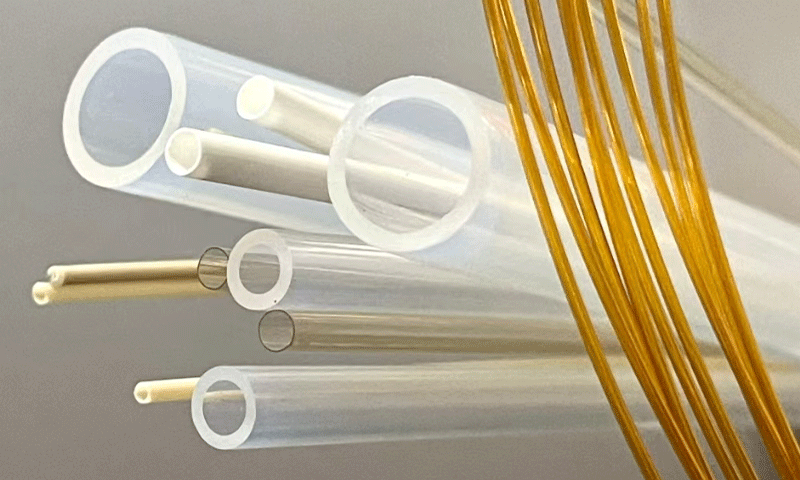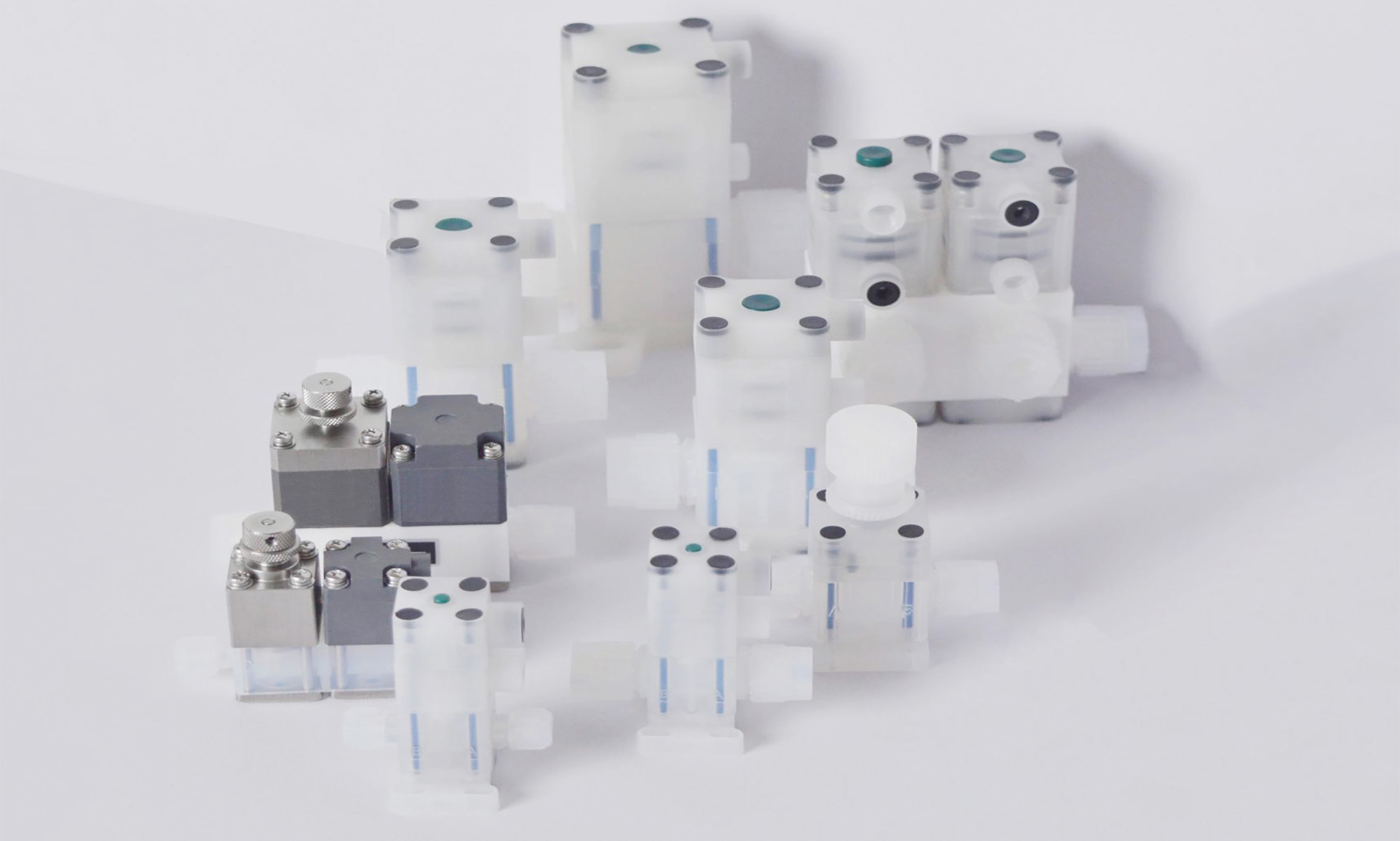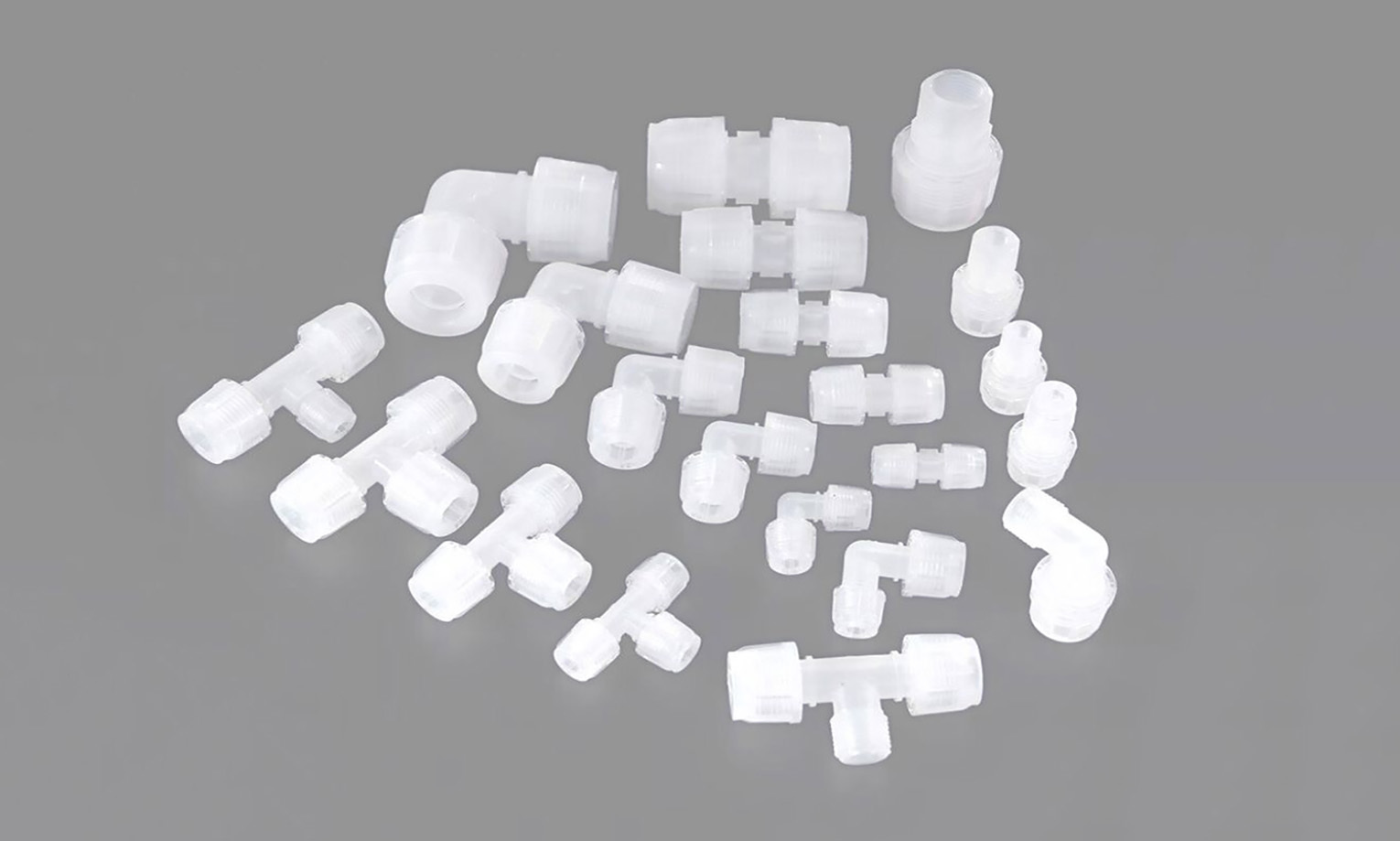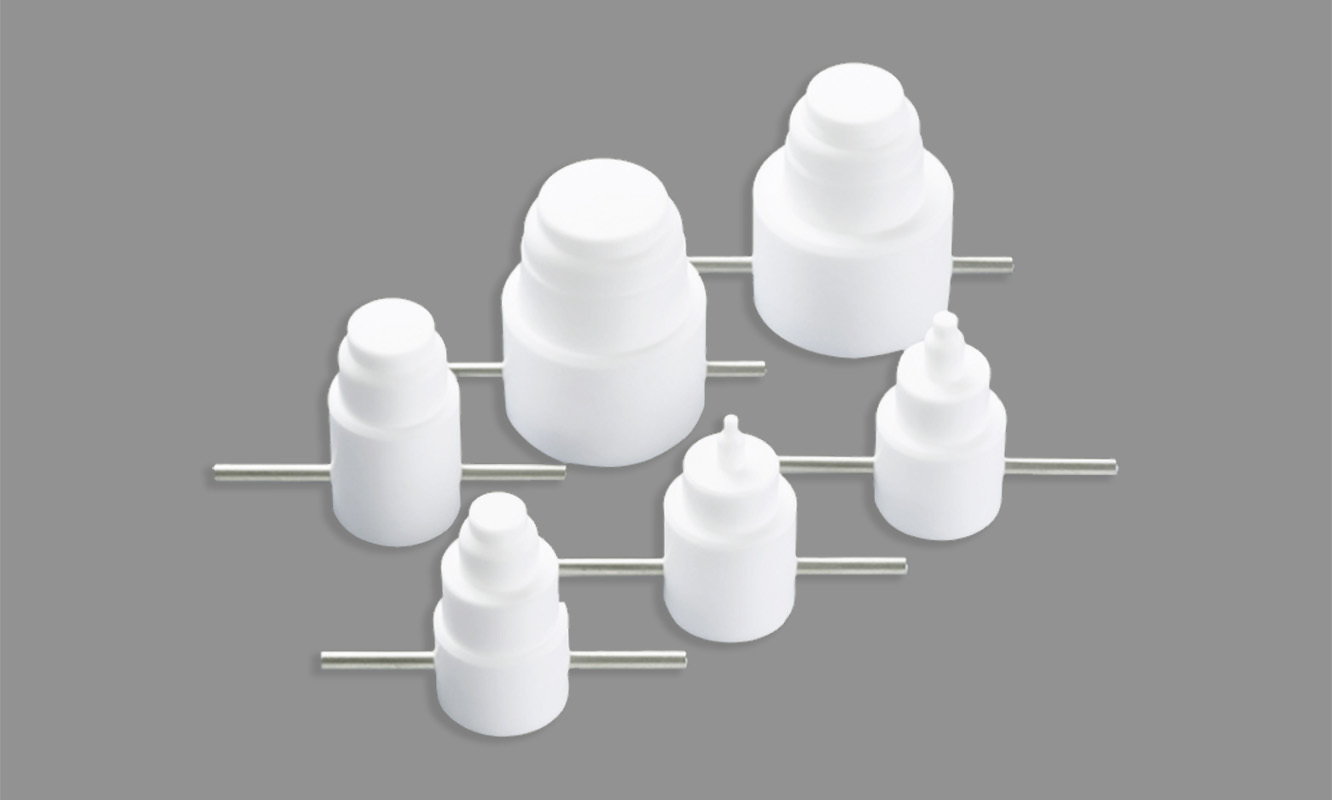The Role of Fluorine Compounds in Critical Semiconductor Manufacturing
09/08
2025
Fluoropolymers With their outstanding chemical inertness 、 heat resistance and non-stick properties , they have become indispensable materials in the semiconductor manufacturing field. These characteristics make them especially suitable for production environments with extremely high cleanliness requirements, where even minor contamination can affect the entire production process. Additionally, fluoropolymers can significantly enhance the performance of key processes such as photolithography and etching, helping to improve product yield and ensure the consistency of microelectronic device quality.
In semiconductor factories , fluoropolymers are widely used in multiple stages, silently supporting efficient and safe production operations. The following are some main application areas:
In the wafer processing stage, contamination control is crucial. Fluoropolymer seals, gaskets, and other components can resist strong corrosive chemicals, maintaining wafer purity during etching, deposition, cleaning, and chemical mechanical polishing (CMP) processes.
In chemical storage and delivery systems, fluoropolymers ensure fluids maintain ultra-high purity at all times. Materials like PTFE (polytetrafluoroethylene) and PFA (perfluoroalkoxy alkane) can withstand strong acids, bases, and solvents, guaranteeing chemical stability from supply to point of use.
Photolithography processes require extremely high precision. Fluoropolymers have excellent etch resistance and UV resistance, protecting the integrity of fine circuit patterns during processing.
Fluoropolymer valves, pumps, and fittings are widely used in ultra-pure gas and liquid delivery systems . Their high reliability effectively prevents leaks and contamination, ensuring production continuity and reducing losses caused by interruptions.
Wafer handling systems also benefit from the non-stick and low outgassing properties of fluoropolymers. Mechanical arms, wafer boxes, and trays made from these materials minimize physical damage, electrostatic discharge, and contamination risks to the greatest extent.
In summary, fluoropolymers are the cornerstone of modern semiconductor manufacturing processes. They not only provide critical protection against contamination but also enhance process precision and the durability of production equipment. Their excellent chemical and thermal stability help reduce defects and downtime, enabling more efficient and cost-effective product manufacturing.
As semiconductor technology continues to advance toward smaller process nodes and more complex architectures, the role of fluoropolymers will become increasingly important. Fully leveraging their unique properties will be key to achieving higher performance and reliability in the next generation of electronic devices.
Recommended Reading
Pure Innovation
Refined Future





